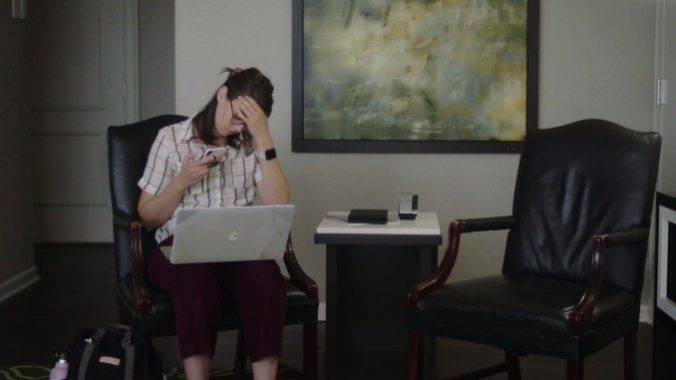Victim/Suspect is an Illuminating, Insufficient Portrait of Sexual Assault Reporting

Towards the conclusion of Nancy Schwartzman’s Victim/Suspect–a crime documentary meant to shed light on how police investigations of sexual assault often turn against the reporting victims—the film and its lead journalist, Rachel “Rae” de Leon, throw up a number of statistics about rape cases in the United States. Of the more than 460,000 rapes that are estimated to occur per year, only 30% are reported, and a devastating 1% actually see the perpetrators convicted. There is astoundingly little incentive for victims to ever come forward, compounded by the fact that, as the film details, detectives are insufficiently trained in dealing with sexual assault investigations. This leads to an appalling number of victims arrested for false reporting, after being intimidated into recanting their statement. We learn that the reasoning for police turning the tables on victims isn’t necessarily intentional malice or misogyny but pure, bureaucratic neglect: It’s easiest for the police to circumvent “he said, she said” and usher an arrest, close the case, and get it off their desk.
This information, however, isn’t necessarily shocking to those who are even moderately aware of the culture of sexual assault in America, nor is the neglect and cruelty faced by the young victims, who see those they turned to for protection turn again them. Victim/Suspect is Schwartzman’s second feature documentary, following 2019’s well-received Roll Red Roll, about the infamous Steubenville rape case. Schwartzman shapes Victim/Suspect’s focus around de Leon. As a young reporter eager for a case to call her own, de Leon stumbled upon a local news story about Nikki Yovino, who was jailed for one year after allegedly falsifying a rape report. After de Leon’s editor gives her the go-ahead, the case leads de Leon to a nationwide pattern: An epidemic of rape victims found guilty of lying about their rapes.
Using Yovino as a jumping-off point, Victim/Suspect and de Leon focus in particular on two other such victims: Emma Mannion, who was raped by two men that she knew, and Dyanie Bermeo, who was raped by a stranger allegedly posing as a cop. This is in addition to covering the tragic case of Megan Rondini, who had her investigation handled by the same Tuscaloosa, Alabama detective as Mannion and which concluded with her suicide. We watch all three women’s interrogations and witness the moments that their detectives began to switch things up on them, turning their status from “victim” into that of “suspect.”
It’s incredibly easy for detectives to confuse these women—this is repeatedly happening to young, inexperienced women—with a “ruse,” something that de Leon learns police use quite frequently in interrogations to elicit confessions. Claiming to a victim of sexual assault that there is, for example, video evidence that proves they’re lying only further clouds a mind already in a fragile state post-assault. All the ruse does is make the victims further question themselves and their memories, even if they know for a fact that they were raped. Their ensuing confessions of guilt are merely pleas for escape.
-

-

-

-

-

-

-

-

-

-

-

-

-

-

-

-

-

-

-

-

-

-

-

-

-

-

-

-

-

-

-

-

-

-

-

-

-

-

-

-








































